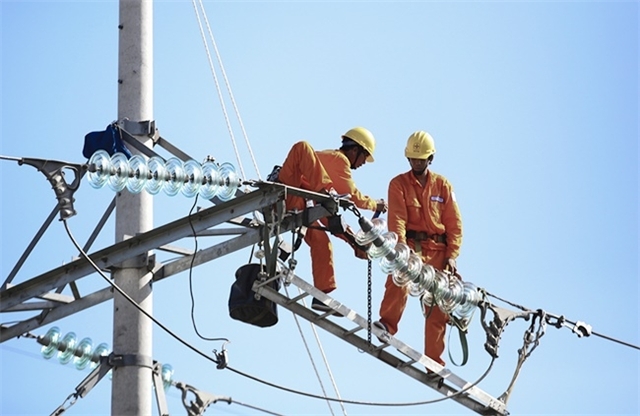The recently-released 2016 audited financial statements of Electricity of Vietnam (EVN) reveal a highly-leveraged capital structure, with a debt ratio of over 70 per cent as at December 31 and most likely even higher.

EVN’s pre-tax profit rose 12.4 per cent in 2016 against 2015 to VND5.16 trillion ($227 million), with foreign exchange losses down by 37 per cent to VND3.67 trillion ($161.44 million). The group set aside a total of VND16.13 trillion ($709.5 million) in interest payments, and continued to bear nearly VND2.5 trillion ($110 million) in losses from ineffective investments.
Foreign exchange risks arise primarily because much of EVN’s debt is and will continue to be denominated in foreign currency and it suffers significant losses when the Vietnam dong is devalued.
Total assets as at December 31 had increased 8 per cent to VND692.2 trillion ($30.45 billion), mainly consisting of fixed assets worth VND473.4 trillion ($20.8 billion), or 68.4 per cent of the total. At a rate of VND22,700 per USD, EVN’s accounts payable rose 7.1 per cent compared to 2015 to VND487 trillion ($21.5 billion) as at the end of 2016.
By December 31, borrowings totaled VND396.6 trillion ($17.5 billion), including short-term loans of VND35.66 trillion ($1.6 billion) and long-term loans of VND360.93 trillion ($15.9 billion). Total owner equity increased 10.2 per cent during the year, to VND205.23 trillion ($9 billion).
According to Deloitte Vietnam, EVN’s auditing unit, there were still potential liabilities, but no adjustment in regard to these potential liabilities was made in the 2016 audited consolidated financial statements due to unreliability in the value of these liabilities. EVN’s debt ratio of over 70 per cent by the end of 2016 could even be higher, the report noted.
With capital expenditure needs estimated at $28 billion, or almost $4 billion per year for the 2014-2020 period, and with a need to refinance some of its borrowings every year, EVN is likely to further increase its borrowings in the years to come.
Prime Minister Nguyen Xuan Phuc recently promulgated a new decision allowing EVN to raise the average retail price of electricity by between 3-5 per cent without the need to secure approval from the Ministry of Industry and Trade (MoIT). For increases of more than 5 per cent but less than 10 per cent, EVN should request permission from MoIT.
The superseded decision allowed EVN to raise electricity prices only when there was a need for a hike of at least 7 per cent to cover increases in input prices. It was believed that this did not allow for a timely response to fluctuations in basic input prices.
EVN and its subsidiaries collectively control about 66 per cent of Vietnam’s installed generating capacity. The three generation companies - Power Generation Corporation (Genco) 1, 2 and 3 - which are currently set for equitization, hold most of the capacity, but a number of multi-purpose hydropower plants (which provide both power and irrigation) are owned centrally.
The National Power Transmission Corporation (EVN NPT), an affiliate of EVN, owns and operates high voltage transmission networks (500 kV and 22 kV).
VN Economic Times